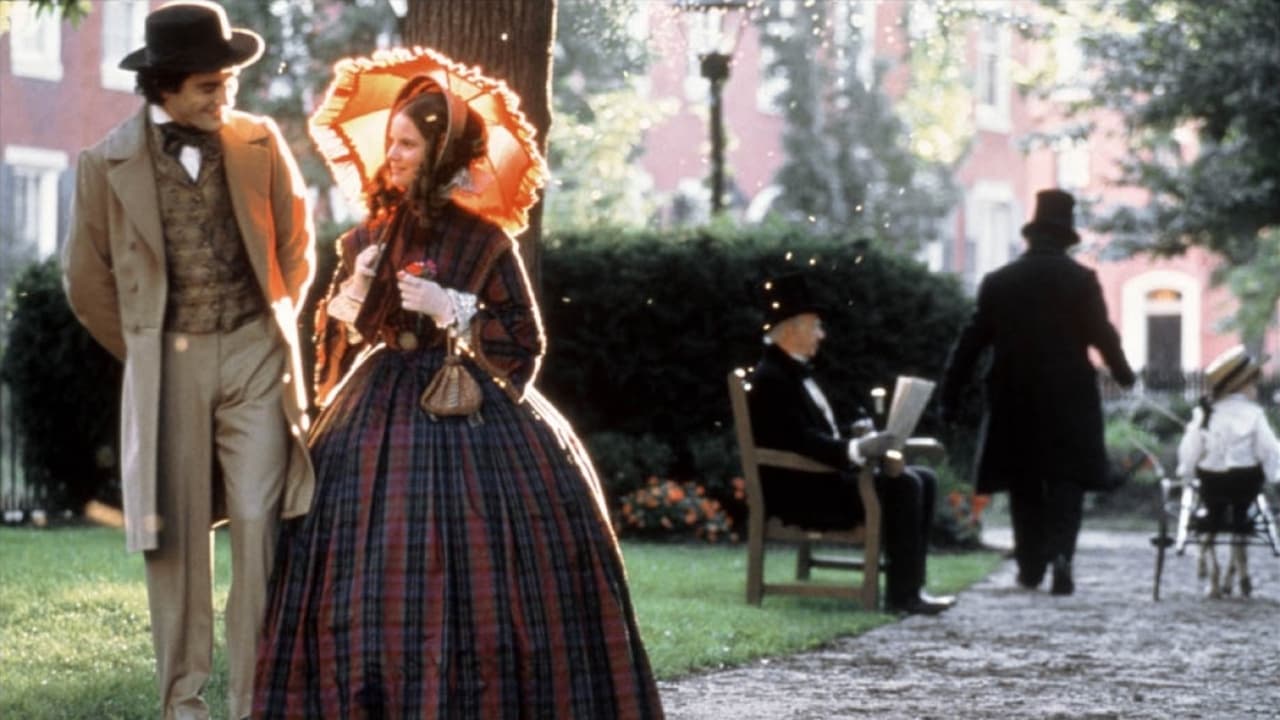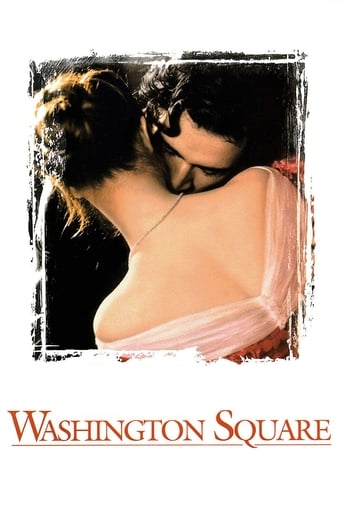

Who payed the critics
... View MoreThe performances transcend the film's tropes, grounding it in characters that feel more complete than this subgenre often produces.
... View MoreA clunky actioner with a handful of cool moments.
... View MoreThe film's masterful storytelling did its job. The message was clear. No need to overdo.
... View MoreThis is a masterpiece of film-making, both because of the talented Polish director Agnieszka Holland, and the performance by Jennifer Jason Leigh. This is the best performance by Leigh which I have seen, and I always think she is inspired, but here she truly transcends herself. It is simply one of the greatest cinematic performances of the 1990s. Rarely has an actress so intimately portrayed the most subtle nuances of mood so well. Such an intimate film could only have been directed by a woman, and I don't believe Leigh could have done this for a male director, not even her chum, the late Robert Altman. The performance by Leigh is really as delicate as gossamer, and she spins a transparent silky web of tormented love with such intensity she outdoes even Olivia de Havilland, who played the role before her in 'The Heiress' long ago, and to do that is a miracle! The only way to describe Leigh's performance is to say that she has a 'naked face'. She seems determined to hide nothing. Pathological shyness has rarely been shown so clearly. Throughout the film, Leigh does a progressive striptease of the soul, and she ends up with nothing on but her hard-earned sense of self worth, which cloaks her admirably. Ben Chaplin is a perfect choice for the young suitor, and he mixes goodness and elegance with the desperate grasping nature of the character in an ideal cocktail that is deadly while it is sweet. And Albert Finney surpasses himself as the father so eaten up with bitterness at his wife's death in childbirth that he can never forgive his pathetic daughter for 'killing her', and actively hates and persecutes her for her entire lifetime. Henry James wrote the novel, and he knew a thing or two about people. I once knew someone who had actually met Henry James, namely Dorothy Pound, and I asked her what he was like. (Well you would, wouldn't you?) She said she never had any real conversation with him because he spent all his time talking to Ezra, and they would meet from time to time strolling in Hyde Park, when James always had an attractive young woman on his arm, he would say something pleasant to the Pounds, and then he would be off. I said but what was he LIKE? She said: 'He wore a beautiful red waistcoat.' So there you go. And so does Albert Finney, as a crusty old port drinker with an American accent in this harrowing and tragic tale of intensity in the Square. By the way, the film was shot in Baltimore, and achieves a high degree of authenticity with well-preserved old houses, both inside and out. As time passes in the story, the style of 19th century costumes changes appropriately. Everything is done with finesse. The film commences with the most stunning continuous moving shot, starting in the square, then going up to the front door of the house, 21 Washington Square, then entering the house, moving through it, going up the stairs, and entering the bedroom while a newborn baby cries O.S. and the mother lies dead on her bed with her eyes open wide. Finney lies down beside her and says: 'Now you will be together in heaven with our son.' What a way to open a film! And the final scene of the film, which I must not describe, is equally impressive in a completely different way, with the last shot featuring an incredible lighting effect. Technically, the film is perfect. Holland did not have Wajda as her mentor for nothing, and she is a true artist. I believe this is the finest of all the many excellent films based on Henry James stories, and most of them are so good, that is high praise indeed.
... View MorePeriod piece costume drama that looks very good and features some very good performances. Catherine Sloper (Jennifer Jason Leigh) is the plain and simple daughter of a well-to-do doctor (Albert Finney), whose is raised by her aunt (Maggie Smith) when her mother passes away in childbirth. When a handsome young man (Ben Chaplin) becomes interested in Catherine she is transformed, but her father suspects the young man is only after her money.The performance by Jennifer Jason Leigh is quite impressive as she shows her characters development throughout the film, the rest of the cast is also by and large quite strong particularly Albert Finney.Thanks to both the original novel and the adaptation by director Agniezka Holland and her screenwriter the film manages to present a story with a definite edge and characters with layers rather than just a simple costume drama.Based on the Henry James novel, previously adapted as "The Heiress" by William Wyler in 1949 with Olivia de havilland (Oscar as Best Actress), Montgomery Clift and Ralph Richardson
... View MoreNormally I don't enjoy romantic dramas. There have been some exceptions. I have mixed opinions regarding 'Washington Square'. Starting with the way it 'looks', the interiors and the costumes look very precise to the time but the outdoor sets lack authentic appearance. The extras seem to sleepwalk through the park. The cinematography is too ordinary to have any effect. The movie, at times, moves at a slow pace. I also would have liked to see more development and growth in Catherine after Morris's departure. Instead, here the movie quickly moves from one event to another. Jennifer Jason Leigh might be an odd choice and contrary to others, I thought she did quite a fine job. She may not be physically unattractive (as Catherine is portrayed to be). Actually the lack of makeup show her to be quite a natural beauty but she gets the character right in every other aspect. Albert Finney and Ben Chaplin are good too and Maggie Smith is gold. Judith Ivey too deserves special mention. I liked the music, particularly the song 'sung' by Catherine and Morris by the piano. The dialogues are notable too. Especially the one between Catherine and her father and the one in the final sequence with her and Morris.'Washington Square' makes for a decent one-time watch, mostly because of the performances.
... View MoreI love Henry James books and Washington Square was no exception. I was very excited to see a new movie coming out, based on the book of that title. Jennifer Jason Lee is an exceptional actress and Ben Chaplin good enough to play the lead roles. Albert Finney is miscast and doesn't carry the role well. I wanted to shoot Maggie Smith....or rather her silly, insipid role. The real problem and what's lacking in this latest version is a good script, music, and direction.I fell asleep in the theater watching this long, drawn out and exceptionally boring movie. There are more pauses in the dialog than a Pinter Play. In the book I felt a deep caring for Catherine Sloper and her life. The movie had just the opposite effect. I also disliked the twist where her aunt has a sexual attraction to Morris. Eeeeeeeek. YUK.Watch it if you can't sleep, it's a definite snoozer. Don't watch it if you're depressed. You'll need Zoloft after this.Sure, "The Heiress" was exceptional with Olivia Haviland and Montgomery Clift in the title roles. The actor who played her father was on the mark as the uncaring, cold father....still grieving for his dead wife and hating Catherine for it. The movie was not faithful to the book but neither is this one.This movie was a box office flop. I have no doubts as to why.
... View More